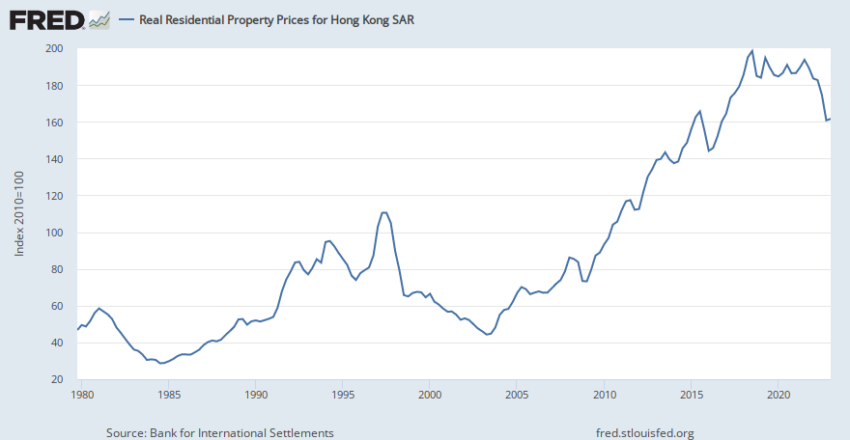Hong Kong’s real estate market stands on the brink of a revolutionary transformation, with Taiji Capital leading the charge. The investment firm recently announced the launch of PRINCE, Hong Kong’s inaugural real estate fund security token issuance (STO).
This pioneering move could cause a shift in the city’s property market.
Hong Kong Hub for Real Estate Tokenization
The PRINCE token is tailored for professional investors, aiming to raise HK$100 million. If the project receives regulatory approval, these tokens will also be listed on the trading platform HKbitEX, enabling secondary market trading throughout the day.
This innovation will significantly reduce financing costs, marking a radical real estate investment paradigm shift.
The tokenization of real estate and other real-world assets is a growing trend globally, and Hong Kong is embracing this wave. By converting physical property into a digital token on a blockchain, the process democratizes investment and also enhances liquidity in the traditionally illiquid real estate market.
Read more: Real World Asset (RWA) Backed Tokens Explained
This allows investors more accessibility and flexible investment options.
Given Hong Kong’s status as a global financial hub, the move by Taiji Capital carries particular significance. The city’s adoption of tokenization could also signal a broader shift in the real estate market worldwide.
Ripple’s Managing Director Brooks Entwistle said,
“There is no question that digital currencies are going to be a part of the landscape going forward.”
As the first of its kind in Hong Kong, PRINCE could set a precedent for future tokenized real estate funds, opening the door for more diverse and dynamic investment strategies.
Regulators Have a Lot on Their Plates
However, the success of PRINCE hinges on regulatory approval. The tokenization of real estate is a new frontier, and regulatory frameworks must adapt to accommodate this innovation.
The US has already experienced challenges in this area, with laws denying investors the liquidity benefits of tokenization. Hong Kong regulators will also need to navigate these complexities to ensure a smooth transition to this new era of real estate investments.
Duncan Fitzgerald, partner at PwC Hong Kong, had this to say about the new opportunities that tokenization could unlock:
“These opportunities include innovative programmable securities, cash flow advantages through the atomic settlement of trades, and enabling investment in otherwise illiquid assets through fractionalization.”
Read more: A Token Economy for Europe: Considering the Opportunities
The potential listing of PRINCE on HKbitEX also highlights the increasing integration of real estate and digital finance.
This platform could become a hub for tokenized real estate trading. This could provide investors with a more streamlined and efficient investment process. Taiji Capital’s launch of PRINCE is a bold step into the future of Hong Kong’s real estate market.
Disclaimer
In adherence to the Trust Project guidelines, BeInCrypto is committed to unbiased, transparent reporting. This news article aims to provide accurate, timely information. However, readers are advised to verify facts independently and consult with a professional before making any decisions based on this content.
This article was initially compiled by an advanced AI, engineered to extract, analyze, and organize information from a broad array of sources. It operates devoid of personal beliefs, emotions, or biases, providing data-centric content. To ensure its relevance, accuracy, and adherence to BeInCrypto’s editorial standards, a human editor meticulously reviewed, edited, and approved the article for publication.
The post Hong Kong’s Real Estate Market on the Verge of Tokenization appeared first on BeInCrypto.
